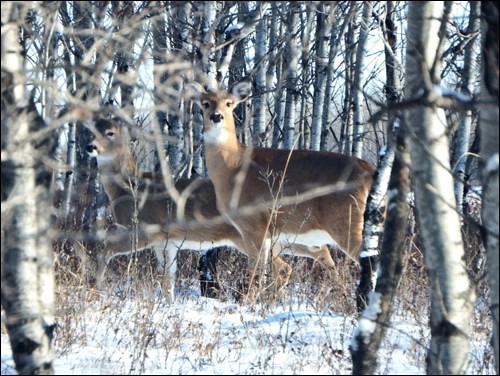A number of hunting and angling fees and penalties, as well as eHealth and Financial and Consumer Affairs Authority fees, are going up April 1 to address the deficit situation facing the government.
According to the government’s news release March 16, the changes will add $8.7 million to the General Revenue Fund and $886,500 to the Fish and Wildlife Development Fund in 2017-18.
The increases will also raise about $1.1 million to assist in recovering the cost of services provided by eHealth and the Financial and Consumer Affairs Authority for the upcoming fiscal year as well.
The changes were announced in advance of the March 22 budget. Here is a rundown of the changes that are taking effect April 1:
Saskatchewan resident hunting and trapping licence fees will go up by $10; Wildlife Habitat Certificates will increase by $5, fees will be rounded to the nearest $5 (inclusive of GST); Canadian and non-resident hunting licence fees will also increase; and a new $50 wolf hunting licence will be available for Saskatchewan residents. These changes are expected to raise $2.1 million.
Saskatchewan resident angling licence fees are increased by $3 for one-day licences, $4 for three-day licences and $8 for annual licences. Fees are to be rounded to the nearest full dollar amount (inclusive of GST). Canadian and non-resident angling licence fees are also increasing. That is expected to raise $850,000.
Fines for fishery and wildlife offences are also going up. As of April 1 the voluntary payment option for fishing without a licence rises from $100 plus $25 per fish to $200 plus $50 per fish; a fine of $500 will be introduced for failing to stop at a watercraft inspection station; and the fine of $1,000 for unlawfully hunting big game will be extended to include bison.
Beginning April 1 will be an Immigrant Nominee Skilled Worker Application Fee. Applicants to the International Skilled Worker – Occupations in Demand and Express Entry categories of the Saskatchewan Immigrant Nominee Program will be required to submit a new, non-refundable application fee of $300. This is expected to raise $1.1 million in additional revenue.
The fee for General Education Diploma and Adult Basic Education transcripts will rise from $15 to $20. That will bring in revenue of $3,000.
Fees for all requested vital event certificates from eHealth will increase between $5 and $15 depending on the type of certificate. That will raise an additional $785,000.
Annual fees for credit union regulatory oversight will be $25,000 for SaskCentral Credit Union and $275,000 for all individual credit unions in the province. This move is expected to raise an additional $300,000.
Annual, per bed licensing fees to personal care homes go up from $10 to $20. That raises an additional $40,000.
A new $40 Personal Care Home Orientation Fee for existing ministry-conducted personal care home orientation workshops will be introduced. That should raise an additional $4,600.
Fees for all water testing provided by the Saskatchewan Disease Control Laboratory will increase by 10 per cent (by between $1 and $20 depending on the requested test). That should raise $136,000.
Finally, a penalty of 10 per cent will be applied on audit assessments for mineral and oil and gas producers, a move expected to raise an additional $4.5 million.
In addition to the changes coming April 1, payday lender licence fees will be going up Oct. 1, with the licensing fee for each location rising from $2,000 to $3,000 annually at approximately 55 payday loan locations. This move should raise $37,000.

.png;w=120;h=80;mode=crop)

.png;w=120;h=80;mode=crop)
